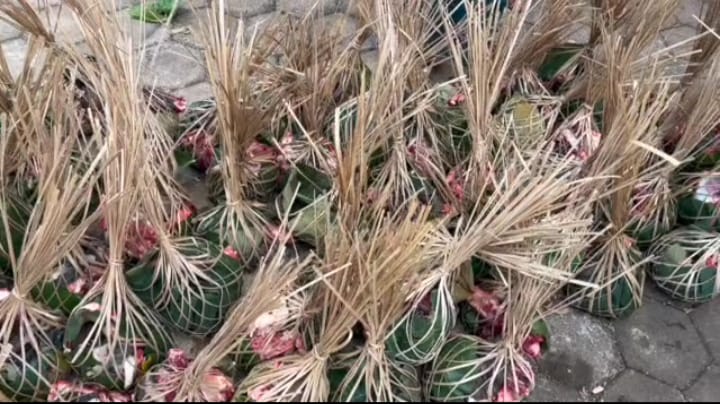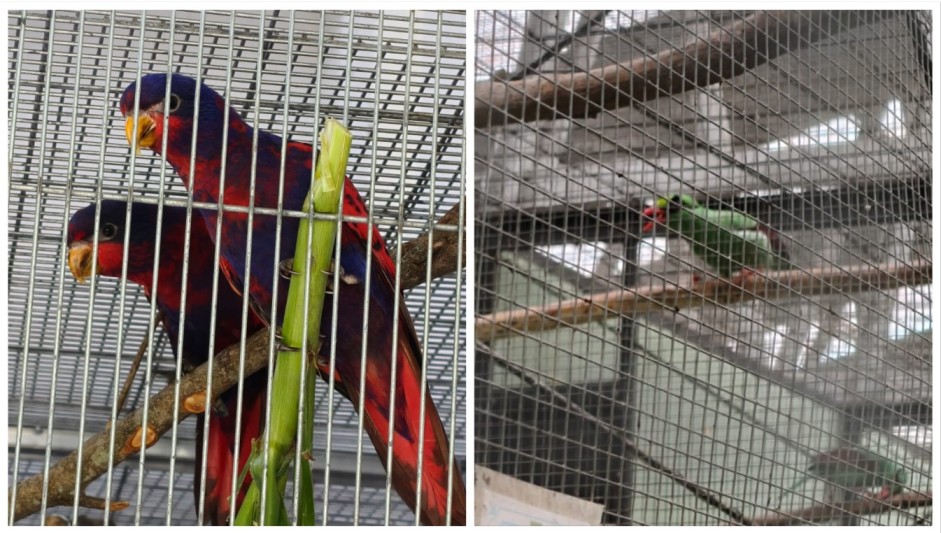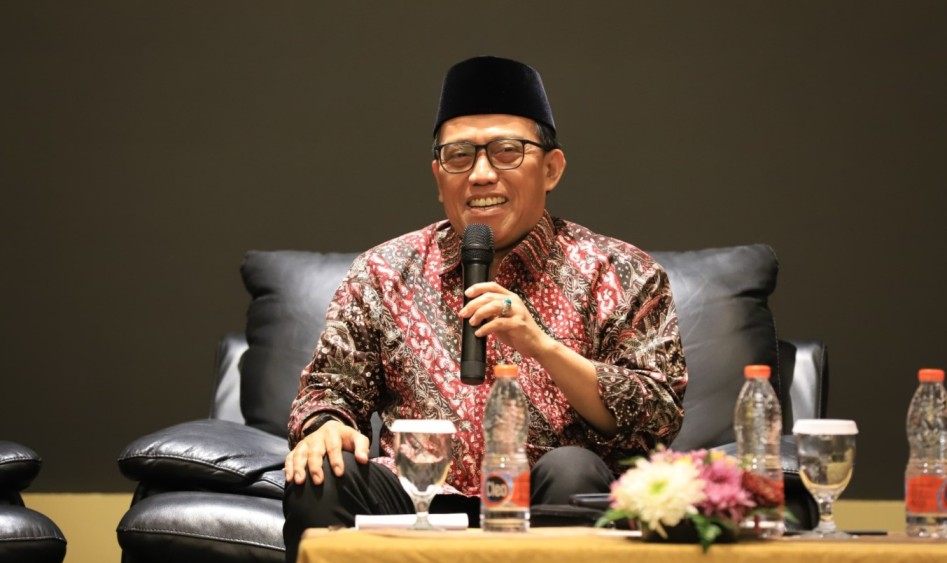Feature –Boarding school initiates to reduce single-use plastic bags in sacrificial meat distribution

By Mohammad Anthoni
Eid al-Adha is a momentum for the Al Amanah Islamic boarding school in Sempon sub district, Wonogiri district, Central Java province, to initiates an effort to reduce single-use plastic bags in sacrificial meat distribution.
Jakarta (Indonesia Window) – The caregiver and person in charge of the Al Amanah Islamic boarding school in Sempon sub district, Wonogiri district, Central Java province, Hayu S. Prabowo has recently led a number of local people in the school’s compound to welcome the momentum of Eid al-Adha which fell on Thursday, June 29, 2023.
They looked busy with making woven bamboo baskets (locally called brongsong) while some people, mostly women, taking teak leaves.
Brongsong is used as a container for sacrificial meat during Muslims’ sacrifice day of Eid al-Adha, while teak leaves are used to maintain the hygiene and durability of meat.

Prabowo and local people take this tradition every year which does not only reduce the amount of single-use plastics, but also creates environmentally-friendly solutions by relying on natural materials that are easily biodegradable.
“With this qurban (sacrificial ritual) without plastic bags, we can contribute to the good of the environment and continue the tradition responsibly,” he said.
In the context of environmentally friendly qurban (ecoqurban), there are several things that Muslims need to pay attention, namely the problem of single-use plastic wastes, animal warfare and animal sacrifice.
Prabowo, who is also the chairman of the Environment and Natural Resources Recovery Institute of the Indonesian Ulemas Council (MUI), said the council has encouraged the reduction of single-use plastic bags in the distribution of sacrificial meat on Eid al-Adha.
He reminded that the use of single-use plastic bags in the distribution of sacrificial meat will increase the generation of environmental pollutants that can disrupt the sustainability of ecosystems and human health.
In addition to advocating reducing the use of single-use plastics, Prabowo expressed the importance of waste management in sacrificial animal slaughter activities so as not to cause environmental pollution.
Observing the increasing danger of single-use plastic waste, many parties ranging from stakeholders in the government level to the communities have begun to realize the importance of changing behavior to reduce the use of single-use plastics and carrying out various initiatives to overcome the problem of single-use plastic bags.
“The problem of waste and environmental damages, actually come from the behavior of all of us as the main actors in the source of waste. This is the religious approach that can play a role in changing behavior according to religious guidance,” he said.
MUI has stipulated Fatwa No. 47/2014 concerning Waste Management to Prevent Environmental Damage, where one of the legal provisions is that every Muslim is obliged to maintain a clean environment, utilize used goods for the benefit and avoid various diseases and act of tabzir and israf.
Tabzir is wasting goods/wealth that can still be used according to syariah (Islamic law) provisions or general habits in the society. Israf is an act of exaggeration, namely the use of goods/wealth exceeds their needs.
Based on last year’s data issued by the Ministry of Agriculture, the distribution of meat from 1,814,403 sacrificial animals slaughtered on Eid al-Adha in 2022 has the potential to produce 124,265,950 pieces of plastic bag waste.
In order to reduce the use of single-use plastic bags in the distribution of sacrificial meat, the Ministry of Environment and Forestry has issued a Circular Letter of the Minister of Environment and Forestry No.SE.4/MENLHK/PSLB3/PLB.2/6/2022 concerning the Implementation of Eid al-Adha Without Plastic Waste.
There are five things that the ministry appeals. First, it appeals and invites the sacrificial meat distribution committees not to use plastic bags and urge the public to bring their own containers that can be reused.
The ministry encourages sacrificial committees to use leaves, woven bamboo or reusable containers to distribute sacrificial animal meat. In addition, the ministry suggested that they provide disaggregated trash bins and establish special task forces to handle waste at prayer sites and slaughter places of sacrificial animals on Eid al-Adha.
The Al Amanah Islamic boarding school, civil society organizations like Dompet Dhuafa and Muhammadiyah’s women organization Aisyiah have shown their commitments to work together in reducing the amount of single-use waste.
For this reason, several initiatives have been carried out by replacing single-use plastic bags with organic materials that are easily biodegradable like leaves (banana leaves, teak leaves and coconut leaves).
“There are many things we can do together, how we together reduce plastic materials which have been disrupting our ecosystem, our health, and all creatures,” Prabowo said.
“The use of organic packages will prevent us from harm due to environmental pollution and the spread of microplastics and nanoplastics that poison living things, including humans.”
Editing by Indonesia Window

.jpg)








